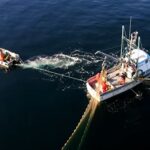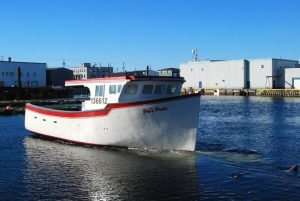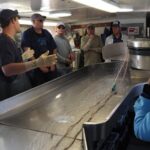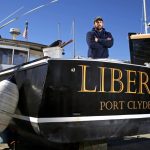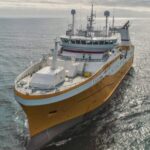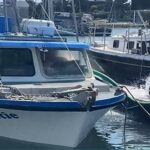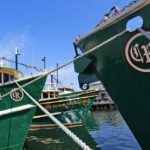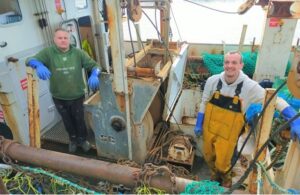Monthly Archives: April 2017
NPFMC Shares Future of Electronic Monitoring Program with Fishermen
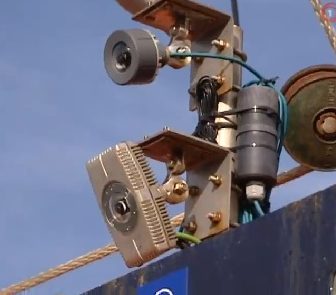 The North Pacific Fishery Management Council is trying to figure out the best way to use video and camera technology for catch monitoring, and it’s on the brink of transitioning into a regulated program. Members of the council spoke at ComFish last week and elaborated on its efforts. Bill Tweit, council vice chair, explained they’ve been working on the partial coverage fleet – the vessels that get observer coverage only some of the time. “Again I think a lot of you are aware that when we restructured the observer program, we extended the size range of boats that are likely to be covered for catch monitoring purposes by an observer, and that’s definitely created some issues around how you fit a human observer onto a fairly small fishing boat, and we knew at the time that it was probably going to be a little problematic, so we’ve trying hard to provide electronic monitoring as an alternative to that.” continue reading the story here 16:59
The North Pacific Fishery Management Council is trying to figure out the best way to use video and camera technology for catch monitoring, and it’s on the brink of transitioning into a regulated program. Members of the council spoke at ComFish last week and elaborated on its efforts. Bill Tweit, council vice chair, explained they’ve been working on the partial coverage fleet – the vessels that get observer coverage only some of the time. “Again I think a lot of you are aware that when we restructured the observer program, we extended the size range of boats that are likely to be covered for catch monitoring purposes by an observer, and that’s definitely created some issues around how you fit a human observer onto a fairly small fishing boat, and we knew at the time that it was probably going to be a little problematic, so we’ve trying hard to provide electronic monitoring as an alternative to that.” continue reading the story here 16:59
A Statement by FISH-NL
 As President of the Federation of Independent Sea Harvesters of Newfoundland and Labrador (FISH-NL), I and FISH-NL apologize to the FFAW for referring to them as the “salt-water mafia.” We won’t be using that expression again. FISH-NL will continue to hold the FFAW to account for its failure to represent the inshore harvesters of Newfoundland and Labrador. Ryan Cleary, President, FISH-NL 13:49
As President of the Federation of Independent Sea Harvesters of Newfoundland and Labrador (FISH-NL), I and FISH-NL apologize to the FFAW for referring to them as the “salt-water mafia.” We won’t be using that expression again. FISH-NL will continue to hold the FFAW to account for its failure to represent the inshore harvesters of Newfoundland and Labrador. Ryan Cleary, President, FISH-NL 13:49
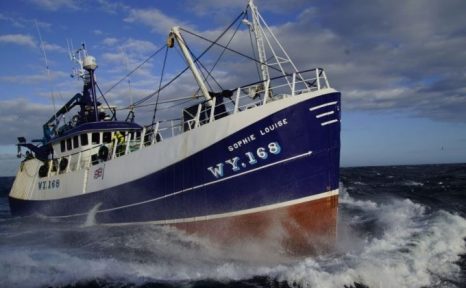
Are Days at Sea the Answer?
Recently, the argument that, after the UK has left the EU, effort control (days at sea limits) could replace quotas as the main management tool in the mixed demersal fisheries, has been finding some currency. It is not difficult to see the appeal. At a stroke, the discard problem would be solved, as vessels could land everything that they catch. The messy business of quota management, with its fixed quota allocations, swaps, leasing, top-slicing etc. could be dispensed with overnight. Instead, vessels would be given an annual allocation of days at sea. Full stop. In some versions of the theory, quota shares are converted into effort shares, which admittedly makes things more complex than a flat-rate number of days for every vessel in the fleet. But before we take the leap of ditching the messy quota system let’s have a look at the other side of the coin. There are a few reasons why effort might not be the road that we want to go down. Here are some of the counter-arguments: Read the article here 12:55
Vinalhaven fisherman accused of stealing lobsters, boat
 A 48-year-old Vinalhaven fisherman was arrested Saturday, April 1, after state officials say he stole lobsters and a boat. Jason L. Marriner was arrested by the Maine Marine Patrol and charged with felony theft, unauthorized use of property and receiving stolen property. Marriner made his initial appearance Monday, April 3, in Knox County Unified Court, where Judge Susan Sparaco set bail at $500 cash or $50,000 surety. He entered no plea because one of the charges is a felony and the case had not yet been presented to a grand jury. Marriner asked to be provided a court-appointed attorney. His next court appearance is scheduled for June 1. According to an affidavit filed in court by the Maine Marine Patrol, investigators had been looking into thefts of lobster crates with lobsters inside, and outboard motorboats on three occasions in Carver’s Harbor on Vinalhaven,,, Read the story here 12:09
A 48-year-old Vinalhaven fisherman was arrested Saturday, April 1, after state officials say he stole lobsters and a boat. Jason L. Marriner was arrested by the Maine Marine Patrol and charged with felony theft, unauthorized use of property and receiving stolen property. Marriner made his initial appearance Monday, April 3, in Knox County Unified Court, where Judge Susan Sparaco set bail at $500 cash or $50,000 surety. He entered no plea because one of the charges is a felony and the case had not yet been presented to a grand jury. Marriner asked to be provided a court-appointed attorney. His next court appearance is scheduled for June 1. According to an affidavit filed in court by the Maine Marine Patrol, investigators had been looking into thefts of lobster crates with lobsters inside, and outboard motorboats on three occasions in Carver’s Harbor on Vinalhaven,,, Read the story here 12:09
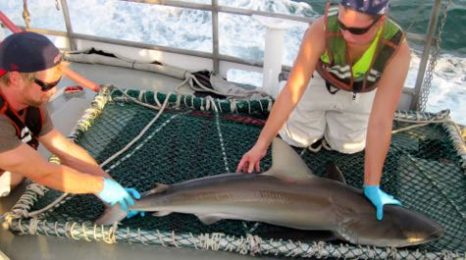
Coastal shark population on rise in southeast U.S, Gulf of Mexico
A recent analysis of population trends among coastal sharks of the southeast U.S. shows that all but one of the seven species studied are increasing in abundance. The gains follow an enactment of fishing regulations in the early 1990s after decades of declining shark numbers. Scientists estimate that over-fishing of sharks along the southeast U.S. coast—which began in earnest following the release of Jaws in 1975 and continued through the 1980s—had reduced populations by 60-99 percent compared to unfished levels.,, The researchers say their study—based on modeling of combined data from six different scientific surveys conducted along the US East Coast and in the Gulf of Mexico between 1975 and 2014—provides a more accurate and optimistic outlook than previous studies based on commercial fishery landings or surveys in a single location. Read the article here 11:00
Boswell, Cook sponsor bills aimed at shrimping rule petition
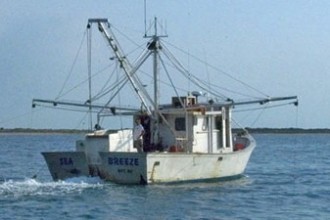 Two bills were introduced in the North Carolina General Assembly last week in response to the Marine Fisheries Commission’s recent endorsement of a petition for rule-making that could limit the shrimp industry in coastal waters. On Wednesday, Sen. Bill Cook (R-Beaufort) filed Senate Bill 432, which would require the completion of a study of shrimp gear. It also calls for gathering viewpoints from all sides. On Thursday, Rep. Beverly Boswell (R-Dare) introduced House Bill 545, which calls on the Fisheries Commission to follow the recommendations of advisory committees when exercising its rule-making powers. The bill would also require the commission to formally adopt a resolution of rejection when it acts against recommendations from the advisory panels. continue reading the article here 10:13
Two bills were introduced in the North Carolina General Assembly last week in response to the Marine Fisheries Commission’s recent endorsement of a petition for rule-making that could limit the shrimp industry in coastal waters. On Wednesday, Sen. Bill Cook (R-Beaufort) filed Senate Bill 432, which would require the completion of a study of shrimp gear. It also calls for gathering viewpoints from all sides. On Thursday, Rep. Beverly Boswell (R-Dare) introduced House Bill 545, which calls on the Fisheries Commission to follow the recommendations of advisory committees when exercising its rule-making powers. The bill would also require the commission to formally adopt a resolution of rejection when it acts against recommendations from the advisory panels. continue reading the article here 10:13
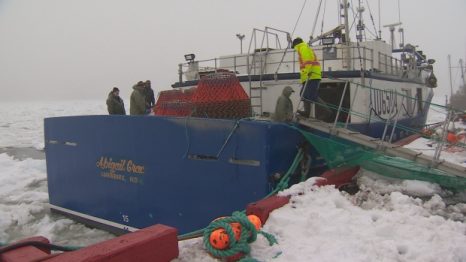
N.L. fishermen worried after double-whammy of snow crab, shrimp announcements
Fishermen in Newfoundland and Labrador say they’re shocked the total allowable catch for snow crab will be slashed 22 per cent this year — and some are relieved it isn’t worse news. “It’s going to be very difficult,” said Nelson Bussey, a fish harvester in Port de Grave, who’s predicting 40 per cent less crab than he caught last year. The quota, announced Monday by the federal department of Fisheries and Oceans, has been set at 35,419 tonnes. Bussey says the cut doesn’t match up with reality. continue reading the story here 09:40
Crab quota cuts are grim news – The news hit just before question period in the House of Assembly Monday afternoon that the federal government is cutting crab quotas by 22 per cent. This was an additional blow after the federal government cut the Area 6 shrimp quota by 63 per cent last week, in response to a declining biomass. Shellfish made up more than 80 per cent of the total landed value of seafood last year, so these kinds of cuts will have a huge economic impact. continue reading the story here 09:46
Coast Guard rescues 2 fishermen when vessel gets stuck on north Mayport jetty
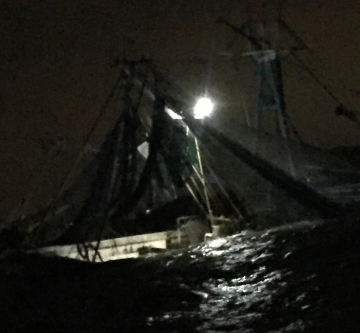 The Coast Guard rescued two boaters Monday after the boaters’ fishing vessel became stuck on the north Mayport jetties. Coast Guard Sector Jacksonville Command Center watch standers received a call via VHF channel 16 at 8:29 p.m. from the crew of a 73-foot fishing vessel Privateer stating their vessel was taking on water. The two crew members stated their anchor slipped and caused them to drift into the north Mayport jetties. Coast Guard Station Mayport launched two 29-foot Response Boat–Smalls at 8:36 p.m. The two crew members were rescued at 8:56 p.m. and taken to Station Mayport with no reported injuries. Coast Guard investigators and pollution responders are en route. A good Samaritan in the area also responded and assisted the RB–S crews in locating the fishing vessel. USCG 07:53
The Coast Guard rescued two boaters Monday after the boaters’ fishing vessel became stuck on the north Mayport jetties. Coast Guard Sector Jacksonville Command Center watch standers received a call via VHF channel 16 at 8:29 p.m. from the crew of a 73-foot fishing vessel Privateer stating their vessel was taking on water. The two crew members stated their anchor slipped and caused them to drift into the north Mayport jetties. Coast Guard Station Mayport launched two 29-foot Response Boat–Smalls at 8:36 p.m. The two crew members were rescued at 8:56 p.m. and taken to Station Mayport with no reported injuries. Coast Guard investigators and pollution responders are en route. A good Samaritan in the area also responded and assisted the RB–S crews in locating the fishing vessel. USCG 07:53
Maine lobsterman denied bail in federal manslaughter case
 A lobsterman from Cushing will remain jailed until his manslaughter trial despite an impassioned plea to have him released to the custody and supervision of his parents. U.S. Magistrate Judge John Rich ruled Monday that Christopher Hutchinson, 28, should not be allowed bail since he already violated conditions when he used drugs and overdosed last month. His parents, who sat in the courtroom during the hearing in Portland, cried as the judge read his decision. Hutchinson is charged with seaman’s manslaughter in connection with the Nov. 1, 2014, deaths of Tom Hammond, 27, of Rockland and Tyler Sawyer, 15, of St. George. Investigators believe Hutchinson was under the influence of alcohol and opioids when he sailed his lobster boat, No Limits, into a storm, sinking it. ,, Hutchinson was arrested in December after a lengthy investigation and posted $10,000 bail three days later with conditions that he not use substances. He violated those conditions on March 14, when he overdosed on heroin and needed to be revived with the drug Narcan. Read the story here 20:08
A lobsterman from Cushing will remain jailed until his manslaughter trial despite an impassioned plea to have him released to the custody and supervision of his parents. U.S. Magistrate Judge John Rich ruled Monday that Christopher Hutchinson, 28, should not be allowed bail since he already violated conditions when he used drugs and overdosed last month. His parents, who sat in the courtroom during the hearing in Portland, cried as the judge read his decision. Hutchinson is charged with seaman’s manslaughter in connection with the Nov. 1, 2014, deaths of Tom Hammond, 27, of Rockland and Tyler Sawyer, 15, of St. George. Investigators believe Hutchinson was under the influence of alcohol and opioids when he sailed his lobster boat, No Limits, into a storm, sinking it. ,, Hutchinson was arrested in December after a lengthy investigation and posted $10,000 bail three days later with conditions that he not use substances. He violated those conditions on March 14, when he overdosed on heroin and needed to be revived with the drug Narcan. Read the story here 20:08
Mid-Atlantic Council to Hold Public Hearings for Squid Amendment
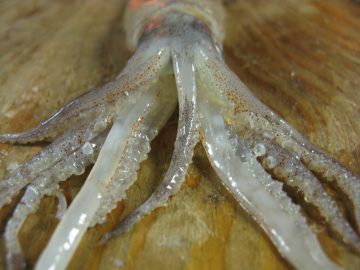 The Mid-Atlantic Fishery Management Council will hold nine public hearings in April and May 2017 to solicit public input on the Squid Amendment to the Atlantic Mackerel, Squid, and Butterfish Fishery Management Plan. The Council is also soliciting written comments on the amendment through 11:59 pm on May 18, 2017.The amendment considers measures to reduce latent longfin and Illex squid permits. Currently, a relatively small portion of vessels with limited access (“moratorium”) squid permits account for the majority of landings in most years. The Council is concerned that activation of latent permits in the squid fisheries could lead to excessive fishing effort, potentially resulting in shortened seasons and increased catch of non-target species. The amendment also considers measures to modify the management of longfin squid during Trimester 2 (May-August). The Council is considering this action because there is concern that the productivity of the longfin squid stock may be negatively impacted if excessive fishing in Trimester 2 does not allow sufficient spawning and/or successful egg hatching from egg mops. Locations of the hearings with time and date, public comment info, Click Here 17:54
The Mid-Atlantic Fishery Management Council will hold nine public hearings in April and May 2017 to solicit public input on the Squid Amendment to the Atlantic Mackerel, Squid, and Butterfish Fishery Management Plan. The Council is also soliciting written comments on the amendment through 11:59 pm on May 18, 2017.The amendment considers measures to reduce latent longfin and Illex squid permits. Currently, a relatively small portion of vessels with limited access (“moratorium”) squid permits account for the majority of landings in most years. The Council is concerned that activation of latent permits in the squid fisheries could lead to excessive fishing effort, potentially resulting in shortened seasons and increased catch of non-target species. The amendment also considers measures to modify the management of longfin squid during Trimester 2 (May-August). The Council is considering this action because there is concern that the productivity of the longfin squid stock may be negatively impacted if excessive fishing in Trimester 2 does not allow sufficient spawning and/or successful egg hatching from egg mops. Locations of the hearings with time and date, public comment info, Click Here 17:54
FISH-NL: Snow-crab cuts another body blow to fishery; special allocation with links to FFAW should be cut immediately
 The Federation of Independent Sea Harvesters of Newfoundland and Labrador (FISH-NL) says the province’s fishing industry took yet another body blow today with news that the federal Department of Fisheries and Oceans cut the overall snow crab quota by 22 per cent. “Today’s news on snow crab, combined with last week’s almost 63 per cent cut to northern shrimp, spells disaster for the inshore fishery,” says Ryan Cleary, President of FISH-NL. “The very first cut in the total allowable catch (TAC) for snow crab on the tail of the Grand Banks in fishing zone 3N outside the 200-mile limit should be to the special interest allocation caught by the Katrina Charlene, the so-called ‘union boat,’ a quota whose origins are directly linked to the FFAW,” says Cleary. “First things first, the time has come for that conflict of interest to be acknowledged and the quota cancelled and added back to the allocations of independent harvesters.” Read the Press Release here 16:20
The Federation of Independent Sea Harvesters of Newfoundland and Labrador (FISH-NL) says the province’s fishing industry took yet another body blow today with news that the federal Department of Fisheries and Oceans cut the overall snow crab quota by 22 per cent. “Today’s news on snow crab, combined with last week’s almost 63 per cent cut to northern shrimp, spells disaster for the inshore fishery,” says Ryan Cleary, President of FISH-NL. “The very first cut in the total allowable catch (TAC) for snow crab on the tail of the Grand Banks in fishing zone 3N outside the 200-mile limit should be to the special interest allocation caught by the Katrina Charlene, the so-called ‘union boat,’ a quota whose origins are directly linked to the FFAW,” says Cleary. “First things first, the time has come for that conflict of interest to be acknowledged and the quota cancelled and added back to the allocations of independent harvesters.” Read the Press Release here 16:20
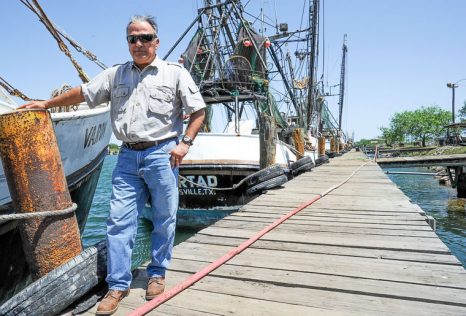
Shrimper shortage: Lack of foreign workers puts Texas shrimp industry in bind
The Texas shrimp industry, struggling for years against high fuel prices and cheap foreign imports, faces a new crisis: a major shortage of the temporary foreign workers that boat owners and processing plants depend on to operate. The shortage is the result of Congress not renewing the H-2B Returning Worker Program when it expired at the end of September. Congress created the exemption in 2015 to help industries like seafood, landscaping and hospitality fill essential jobs.The exemption was established after the government in 2005 instituted an annual cap of 66,000 H-2B foreign worker visas, in response to a surge in H-2B applications from employers since the program started during the late 1980s. The cap is divided equally among the two halves of the fiscal year — 33,000 the first half and 33,000 the last. As part of the H-2B application process, the government requires employers first to advertise the jobs to U.S. workers. In the case of the shrimp industry, however, it’s very difficult to find U.S. workers willing to do the work. The Rio Grande Valley’s shrimp industry increasingly has had to rely on shrimp boat workers from Mexico, who tend to have experience and in some cases have worked on the same U.S. boats for two decades or more. continue reading the story here 15:12
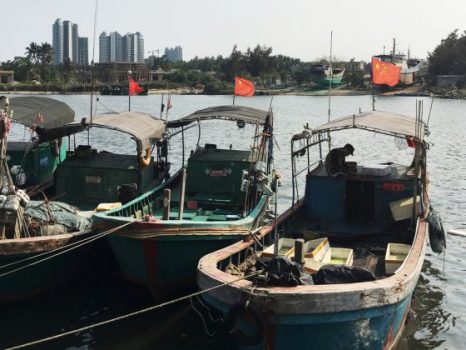
China’s fishing fleet hunts for new oceans to target, squid is becoming the new substitute
Seagulls wheel and cry around the Caleta Portales fishing pier in the Chilean port of Valparaiso while sea lions loiter in the waves. The fishermen hoist their boats out of the water, untangle a paltry catch from their nets and trudge off for a political strategy meeting in a dark room lit only by a PowerPoint presentation. Nearby, a line of white banners bear a defiant message in red block letters: “NO to industrial squid trawling!” ,,, Squid is taking the place of declining stocks. In Valparaiso, artisanal fishermen operating out of Caleta Portales rely on squid for about half of their income. And the carts now sell enchiladas stuffed with squid, which locals call loco de los pobres, or “poor man’s loco”. Even Corpesca, the nation’s largest fishing conglomerate, has moved into the game. Chilean fishermen were outraged in 2012 when the revised fisheries law gave Corpesca a permanent quota for 20 per cent of the squid catch. “Other species have collapsed so these ships and technology are being applied to squid,” Mr Fuentes says. “Squid is becoming a new option.” Read the article, click here 13:57
DFO slashes crab quota in latest blow to N.L. fishing industry
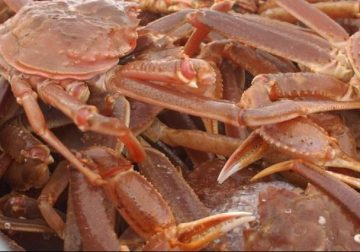 In yet another blow to the Newfoundland and Labrador fishing industry, federal fisheries has announced that the total allowable catch for snow crab will be cut by 22 per cent this year. The Department of Fisheries and Oceans announced Monday that the quota for the region has been set at 35,419 tonnes. The largest hit is in fishing area 3L, east of the Avalon Peninsula, where the bulk of the quota is harvested. Harvesters there will endure a 26 per cent cut in quota, down to less than 25,000 tonnes. The cut was expected, with scientists saying the resource has plummeted in recent years, but that’s little comfort to the thousands of harvesters and plant workers who depend on the fishery. continue reading the story here 13:17
In yet another blow to the Newfoundland and Labrador fishing industry, federal fisheries has announced that the total allowable catch for snow crab will be cut by 22 per cent this year. The Department of Fisheries and Oceans announced Monday that the quota for the region has been set at 35,419 tonnes. The largest hit is in fishing area 3L, east of the Avalon Peninsula, where the bulk of the quota is harvested. Harvesters there will endure a 26 per cent cut in quota, down to less than 25,000 tonnes. The cut was expected, with scientists saying the resource has plummeted in recent years, but that’s little comfort to the thousands of harvesters and plant workers who depend on the fishery. continue reading the story here 13:17
Ray Hilborn study disputes previous findings on forage fish
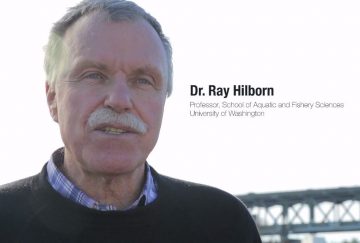 A new study has been published today by a scientific group led by University of Washington fisheries researcher Ray Hilborn that disputes previous findings on the impact of human and natural predation on forage fish such as anchovies, sardines and herring. The study, published in the scientific journal Fisheries Research, found that human fishing for forage fish does not have as great an impact on the food chain as previously thought, given that humans typically catch fish of much larger size than those typically hunted and eaten by non-human species. The study also decouples the link between the size of forage fish populations and the populations of species that predate on forage fish. “What we found is that there is essentially no relationship between how many forage fish there are in the ocean and how well predators do in terms of whether the populations increase or decrease,” Hilborn said in a video explaining the study’s findings. Video, continue reading the story here 11:47
A new study has been published today by a scientific group led by University of Washington fisheries researcher Ray Hilborn that disputes previous findings on the impact of human and natural predation on forage fish such as anchovies, sardines and herring. The study, published in the scientific journal Fisheries Research, found that human fishing for forage fish does not have as great an impact on the food chain as previously thought, given that humans typically catch fish of much larger size than those typically hunted and eaten by non-human species. The study also decouples the link between the size of forage fish populations and the populations of species that predate on forage fish. “What we found is that there is essentially no relationship between how many forage fish there are in the ocean and how well predators do in terms of whether the populations increase or decrease,” Hilborn said in a video explaining the study’s findings. Video, continue reading the story here 11:47
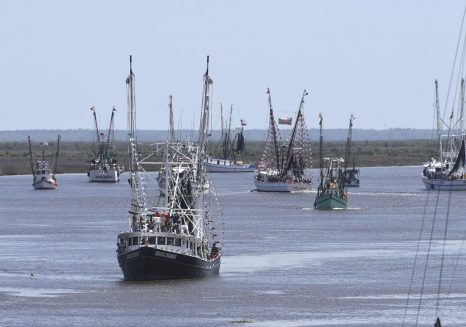
A full weekend of events! Darien gears up for the 49th Blessing of the Fleet
This weekend marks the 49th Blessing of the Fleet in Darien, and the festivities that attendees have come to expect will be there in spades under this year’s theme of “Saltwater Blessings.” “The local community is excited and everyone that normally makes their vacation or homecoming plans, for those that like to plan visits home around the festival, everybody is extremely excited and anticipating the festival,” said Kelly McClellan, festival director. “It’s spring break for the kids, so everyone will be around, we’ve got a lot of student volunteers this year.” The festival kicks off at 5 p.m. this Friday with the opening of vendor booths and the car show. At 6 p.m., the Swinging Medallions start playing on the concert stage. The event closes at 10 p.m. continue reading about the schedule of events here 10:59
Greenpeace criticises fishing monitor’s connections with industry
 Environmental campaigners Greenpeace will take a complaint to the Auditor General after discovering the company responsible for monitoring large chunks of the fishing industry is wholly owned by the industry’s biggest lobby group. The company, named FishServe, has been contracted by the Ministry of Primary Industries (MPI) for the last 20 years to monitor overfishing, take catch reports, manage quotas and decide on licences. A Greenpeace investigation found the company is not only owned by the industry group Seafood New Zealand, but it operates from the same office and shares staff. The revelations follow a series of controversies last year about fish dumping going unprosecuted, and a contract for camera-monitoring also being given to an industry-owned company. continue reading the story here 09:26
Environmental campaigners Greenpeace will take a complaint to the Auditor General after discovering the company responsible for monitoring large chunks of the fishing industry is wholly owned by the industry’s biggest lobby group. The company, named FishServe, has been contracted by the Ministry of Primary Industries (MPI) for the last 20 years to monitor overfishing, take catch reports, manage quotas and decide on licences. A Greenpeace investigation found the company is not only owned by the industry group Seafood New Zealand, but it operates from the same office and shares staff. The revelations follow a series of controversies last year about fish dumping going unprosecuted, and a contract for camera-monitoring also being given to an industry-owned company. continue reading the story here 09:26
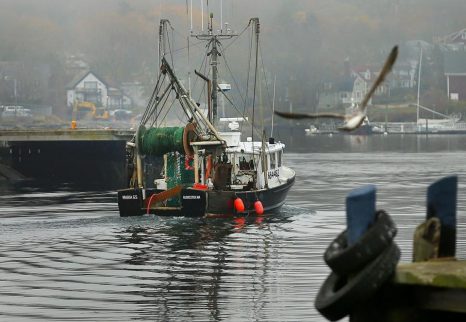
A milestone in the war over the true state of cod
For years, fishermen from Gloucester to New Bedford have accused the federal government of relying on faulty science to assess the health of the region’s cod population, a fundamental flaw that has greatly exaggerated its demise, they say, and led officials to wrongly ban nearly all fishing of the iconic species.The fishermen’s concerns resonated with Governor Charlie Baker, so last year he commissioned his own survey of the waters off New England, where cod were once so abundant that fishermen would say they could walk across the Atlantic on their backs. Now, in a milestone in the war over the true state of cod in the Gulf of Maine, Massachusetts scientists have reached the same dismal conclusion that their federal counterparts did: The region’s cod are at a historic low — about 80 percent less than the population from just a decade ago. continue reading the story here 08:07
Maine wants U.S. help to prevent lobster trade gap with Canada
 As a trade deal between the European Union and Canada nears completion, politicians in Maine want the federal government to find a way to prevent the U.S. from landing in a major trade disadvantage over a valuable, and tasty, resource — lobsters. The Canada-European Union deal would get rid of tariffs on Canadian lobster exports to the 28-nation bloc. That would give Canada a huge advantage over the United States in sending some coveted seafood products overseas. EU nations imported more than $150 million in lobster from America last year, and took more than $190 million Canadian (US$143 million) from Canada. The combination of a strong U.S. dollar and tariffs would make it hard to compete with Canada, American lobster exporters said. continue reading the story here 20:57
As a trade deal between the European Union and Canada nears completion, politicians in Maine want the federal government to find a way to prevent the U.S. from landing in a major trade disadvantage over a valuable, and tasty, resource — lobsters. The Canada-European Union deal would get rid of tariffs on Canadian lobster exports to the 28-nation bloc. That would give Canada a huge advantage over the United States in sending some coveted seafood products overseas. EU nations imported more than $150 million in lobster from America last year, and took more than $190 million Canadian (US$143 million) from Canada. The combination of a strong U.S. dollar and tariffs would make it hard to compete with Canada, American lobster exporters said. continue reading the story here 20:57
Gulf of Mexico Fishery Management Council meeting April 3-6, 2017 in Burmingham
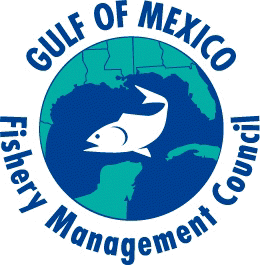 The Gulf of Mexico Fishery Management Council will meet April 3-6, 2017 at the Hyatt Regency Birmingham – The Winfrey Hotel, located at 1000 Riverchase Galleria, Birmingham, Alabama 35244. The meeting will convene on the following days and local times: View Council Agenda View Briefing Materials Register for April Council Webinar 19:31
The Gulf of Mexico Fishery Management Council will meet April 3-6, 2017 at the Hyatt Regency Birmingham – The Winfrey Hotel, located at 1000 Riverchase Galleria, Birmingham, Alabama 35244. The meeting will convene on the following days and local times: View Council Agenda View Briefing Materials Register for April Council Webinar 19:31
Commercial fishing vessel and recreation boat collide – Coast Guard assists 4 boaters near Port Canaveral
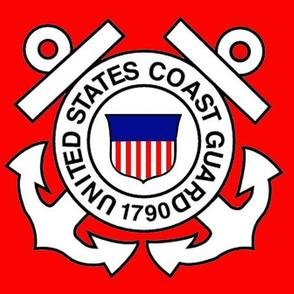 The Coast Guard assisted four boaters Sunday after a commercial fishing vessel and recreation boat collided 2 miles east of Port Canaveral. Coast Guard Sector Jacksonville Command Center watch standers received a call from a members aboard the 48-foot fishing vessel Joyce Marie at 3:30 p.m. stating its outrigger and a 25-foot boat collided. A Coast Guard Station Port Canaveral 45-foot Response Boat –Medium crew launched to assist and embarked two adults and two children from the 25-foot boat after it became disabled. The boaters were taken to Jetty Park where EMS was waiting. Minor injuries were reported to an adult male. The cause of the collision is under investigation. USCG 19:09
The Coast Guard assisted four boaters Sunday after a commercial fishing vessel and recreation boat collided 2 miles east of Port Canaveral. Coast Guard Sector Jacksonville Command Center watch standers received a call from a members aboard the 48-foot fishing vessel Joyce Marie at 3:30 p.m. stating its outrigger and a 25-foot boat collided. A Coast Guard Station Port Canaveral 45-foot Response Boat –Medium crew launched to assist and embarked two adults and two children from the 25-foot boat after it became disabled. The boaters were taken to Jetty Park where EMS was waiting. Minor injuries were reported to an adult male. The cause of the collision is under investigation. USCG 19:09
Update: Missing Gloucester waterman found dead in Guinea Marsh
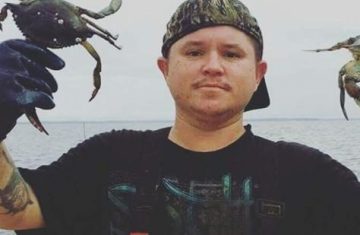 Virginia Marine Police found the body of a waterman in Guinea Marsh in Gloucester Sunday afternoon, according to Marine Resource Commission spokeswoman Laurie Naismith. The man, 31-year-old Tony West of Guinea, was reported missing Saturday about 11:15 a.m. after he did not return home from fishing Friday evening. Philip Brown, 47, of Guinea was also reported missing Saturday. A sunken vessel was spotted in Guinea Marsh around 1 p.m., and Brown was found dead, entangled in a gill net, Naismith said. The search for West resumed Sunday morning with marine police boats and an airplane. West was found around 4:45 p.m., Naismith said. continue reading the rest here 18:25
Virginia Marine Police found the body of a waterman in Guinea Marsh in Gloucester Sunday afternoon, according to Marine Resource Commission spokeswoman Laurie Naismith. The man, 31-year-old Tony West of Guinea, was reported missing Saturday about 11:15 a.m. after he did not return home from fishing Friday evening. Philip Brown, 47, of Guinea was also reported missing Saturday. A sunken vessel was spotted in Guinea Marsh around 1 p.m., and Brown was found dead, entangled in a gill net, Naismith said. The search for West resumed Sunday morning with marine police boats and an airplane. West was found around 4:45 p.m., Naismith said. continue reading the rest here 18:25
Great White Shark Baby Boom Expected Off Montauk
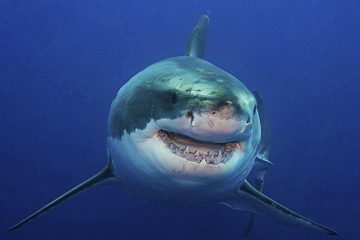 There’s a baby boom of great white sharks expected in the coming months — and the massive mama sharks are about to head to the nursery, located off the coast of Montauk, for the big event. Last year, researchers discovered the first North Atlantic nursery for the fearsome predator in the waters off Montauk, and this year, with the baby sharks tagged, more information than ever before is available to the public, who’ve taken to avidly following the sharks on social media. Right now, according to The Virginian-Pilot, there’s a “shark party” just off the southeastern coast, with 11 sharks tagged by Ocearch.org pinging and revealing their locations via satellite. continue reading the article here 13:43
There’s a baby boom of great white sharks expected in the coming months — and the massive mama sharks are about to head to the nursery, located off the coast of Montauk, for the big event. Last year, researchers discovered the first North Atlantic nursery for the fearsome predator in the waters off Montauk, and this year, with the baby sharks tagged, more information than ever before is available to the public, who’ve taken to avidly following the sharks on social media. Right now, according to The Virginian-Pilot, there’s a “shark party” just off the southeastern coast, with 11 sharks tagged by Ocearch.org pinging and revealing their locations via satellite. continue reading the article here 13:43
Maritime NZ has a ‘moral obligation’ to act over old boats going to Pacific, industry says
 Maritime NZ is failing in its “moral obligation” to ensure old fishing boats leaving our ports are safe, industry groups say. Stuff revealed last week, click here (Where Boats Go To Die) how Tongans have been buying up old fishing trawlers with Government loans, re-flagging them, and sailing them home with no inspections by New Zealand authorities. Some have broken down and one was later abandoned at sea after a dramatic rescue, leaving the uninsured owner with no way of paying back his loan.,, “It’s our reputation that’s on the line…never mind all the other ethical issues that go alongside it. Read the story here 10:23
Maritime NZ is failing in its “moral obligation” to ensure old fishing boats leaving our ports are safe, industry groups say. Stuff revealed last week, click here (Where Boats Go To Die) how Tongans have been buying up old fishing trawlers with Government loans, re-flagging them, and sailing them home with no inspections by New Zealand authorities. Some have broken down and one was later abandoned at sea after a dramatic rescue, leaving the uninsured owner with no way of paying back his loan.,, “It’s our reputation that’s on the line…never mind all the other ethical issues that go alongside it. Read the story here 10:23
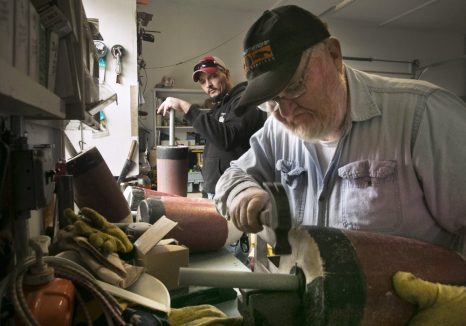
Trapped by heroin: Lobster industry struggles with its deadly secret
Maine lobstermen are plagued by opioid addiction, leading to deaths, ruined lives and even fishing violations to pay for the habit. Some in recovery also recognize the challenge: Getting help to an intensely independent breed that rarely asks for it. Until last year, when he finally kicked a 20-year heroin habit, Tristen Nelson had always been too high to even notice the best things about being a lobsterman in Down East Maine, like the beauty of a Bucks Harbor sunrise or the freedom of fishing two dozen miles offshore. He loves those things about his job now, but for two decades the 35-year-old Machias man only lobstered to make the quick cash he needed to buy heroin. He would spend all his money, up to $60,000 for six months of work, on drugs. And he would end every fishing season broke. continue reading the story here 08:13
1 dead, 1 missing in fishing tragedy in Gloucester, Va
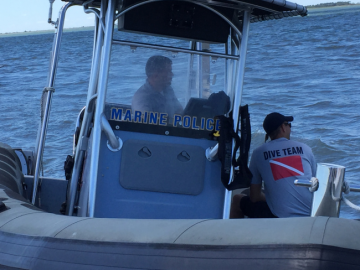 One person is dead and one is missing following a commercial fishing and boating accident in the Swash Channel, Saturday morning. Virginia Marine Police were called at 11:15 a.m. by a family member who said the two fisherman did not return home. The two men were working a gill net in the Swash Channel near the Guinea Marshes in Gloucester. Around 1 p.m. marine police spotted a sunken vessel in the Swash Channel. The body of Phillip Brown, 47, was found nearby tangled in a gill net. Crews are still searching for the other fisherman, 30-year-old Anthony West, and will continue until dark. Read the rest here 20:08
One person is dead and one is missing following a commercial fishing and boating accident in the Swash Channel, Saturday morning. Virginia Marine Police were called at 11:15 a.m. by a family member who said the two fisherman did not return home. The two men were working a gill net in the Swash Channel near the Guinea Marshes in Gloucester. Around 1 p.m. marine police spotted a sunken vessel in the Swash Channel. The body of Phillip Brown, 47, was found nearby tangled in a gill net. Crews are still searching for the other fisherman, 30-year-old Anthony West, and will continue until dark. Read the rest here 20:08
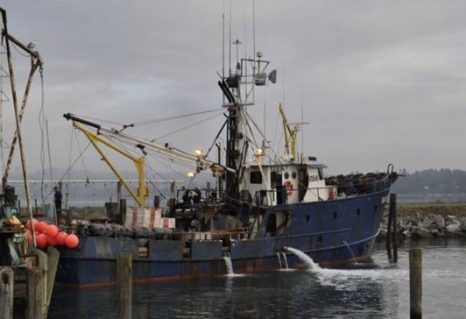
Caught Dead to Rights: Video catches ocean polluters in the act
Video shot by a deckhand was the key piece of evidence that helped convict the owner of a Puget Sound fishing vessel for violating the Clean Water Act. A federal jury handed down a “guilty” verdict this week after the week-long trial of Bingham Fox, who owns the 80 foot Native Sun. Jurors determined that Fox intentionally dumped oily bilge water into the port of Blaine, Wash. The U.S. Coast Guard was alerted to the pollution scheme by a deckhand named Anthony, who shot cell phone video of a makeshift pump that sucked oily sludge from the Native Sun’s hull and pumped it into the ocean and the Puget Sound. Watch the video, read the rest here 18:50
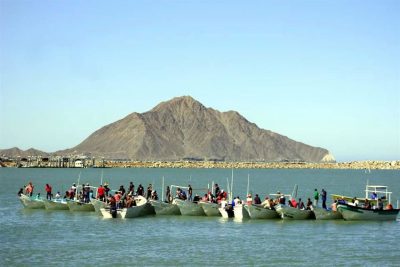
Angry Fishermen protest Gillnet ban, shrimp boycott in upper Sea of Cortés
Fishermen in the upper Sea of Cortés, caught in the middle of efforts to protect a species of porpoise that is on the verge of extinction, faced off against environmentalists this week, protesting their presence in the area and their support for a boycott of Mexican shrimp. Protests in Golfo de Santa Clara, Sonora, and San Felipe, Baja California, were triggered by a call two weeks ago by United States conservation organizations for the shrimp boycott, followed by a proposal last week from Mexican officials to shut down gillnet fishing in the region. What is now “a pressure cooker,” said area fishermen, threatens to become a bomb because the gillnet ban would represent the final blow for local communities. continue reading the story here 17:21
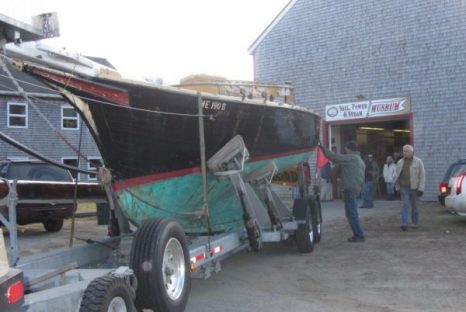
Maine still has at least one sail-powered lobster boat
Before the 1920s, when combustion engines were first mass produced, lobster boats and other vessels were powered by wind and sails, and the Friendship sloop was the most ingeniously designed boat around. “This boat is representative of what is essentially the start of the lobstering industry,” boat builder and shipwright Tim Clark said Thursday as he stood on the recently rebuilt deck of Blackjack, a Friendship sloop he and others at the Sail, Power and Steam Museum in Rockland have been restoring for the past three years. When “combustion engines came along — by the teens and 1920s — they were basically obsolete,” and the ones left were either left to rot in people’s yards or were converted into yachts, according to Clark, lead builder for the project. “Most of us think of the schooner as the symbol of Maine maritime history, but this (type of boat) has the most interesting and dynamic history,” he said. continue reading the story, click here 11:20
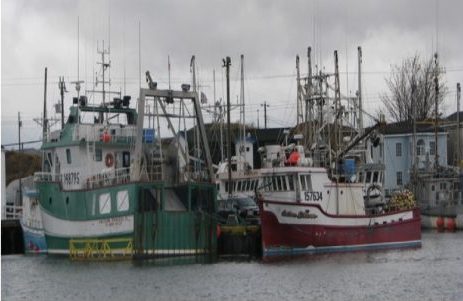
Northern Shrimp quota slashed – Who will get the remaining shrimp quota? Who gets to financially survive?
The fights were starting to brew on Friday, as word spread of cuts to northern shrimp quota for 2017. Lean times in the Newfoundland and Labrador fishery are turning to desperate times. In response to declining shrimp numbers in areas off the province’s coast, the federal government has slashed quotas, with the result an expected wave of job losses. Shellfish shock is hitting the province. Shrimp is not the only consideration, with largely ecological factors including warming temperatures and a return of groundfish numbers also driving down crab counts (the province’s other big cash crop). Click here to read the article 10:50

































